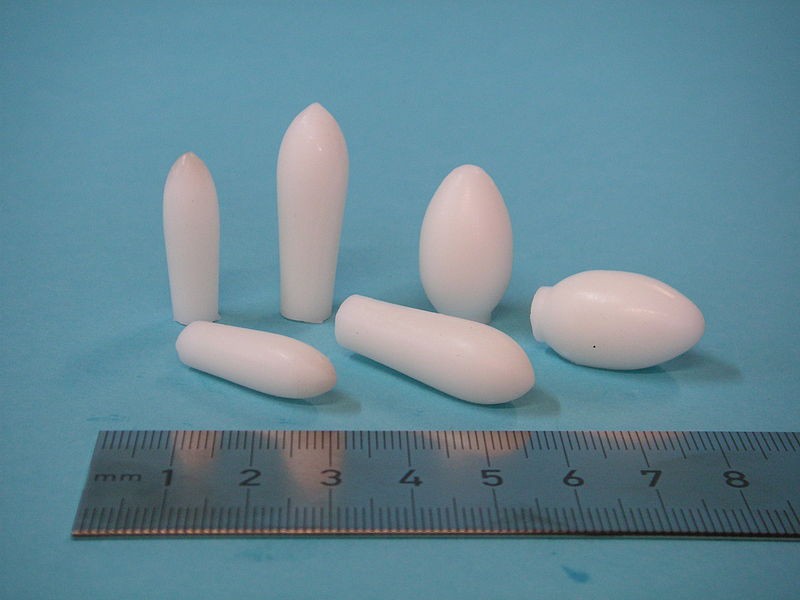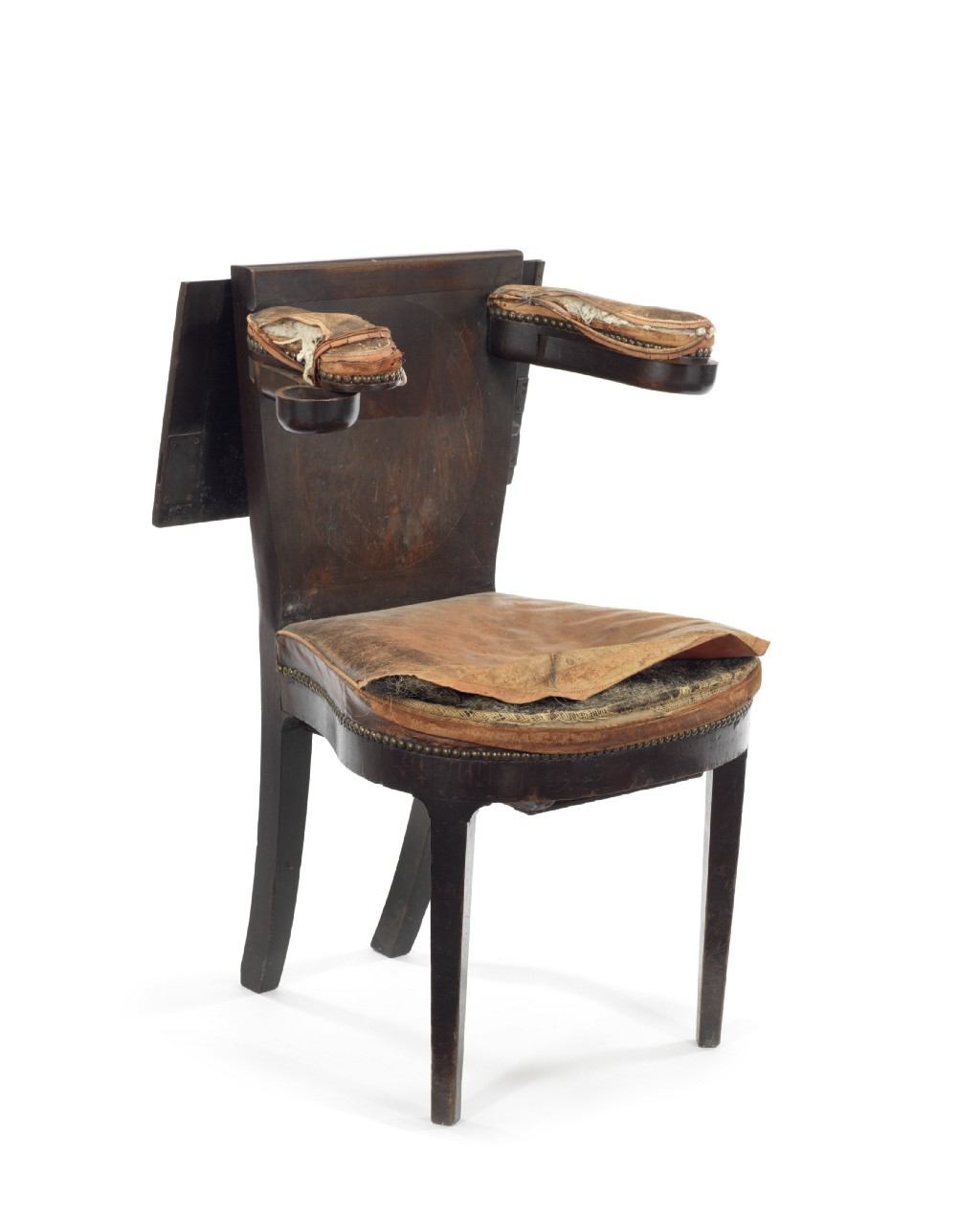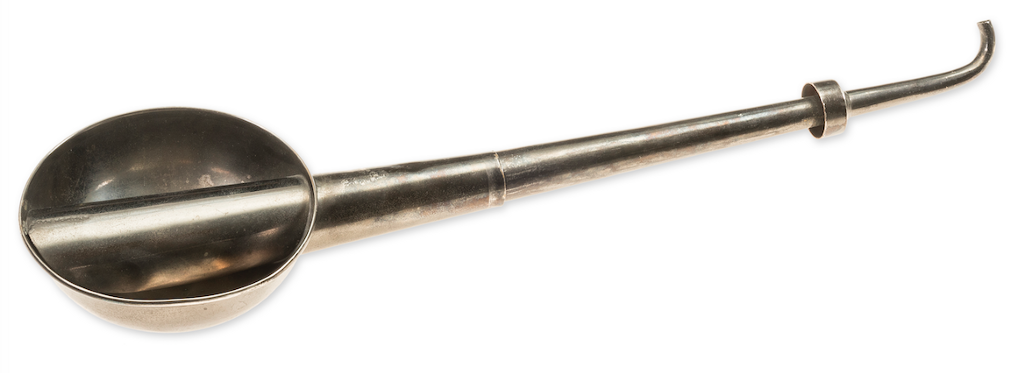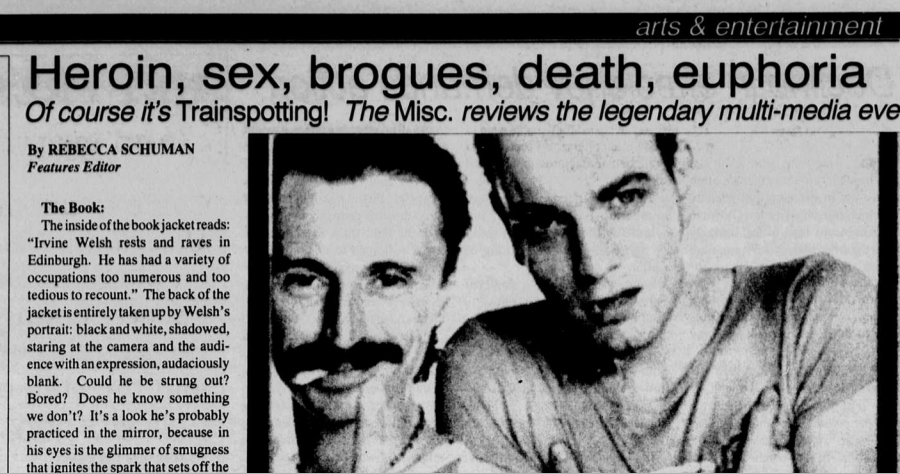Soundscan Surprises, Week of 3/9
Back-catalog sales numbers of note from Nielsen SoundScan.

The definition of “back catalog” is: “at least 18 months old, have fallen below №100 on the Billboard 200 and do not have an active single on our radio.”
Ed Sheeran has a new Ed Sheeran, and in classic Ed Sheeran it’s a symbol just like all the other Ed Sheerans. The new Ed Sheeran means people are buying the old Ed Sheerans, which have always sold well because it’s Ed Sheeran. See how I made it through that whole thing without once saying “leprechaun” because that would be both factually incorrect and politically insensitive? Good for me.
What’s up with Donna Summer? Last week her widower, Bruce Sudano, released a political album, and her daughter talked to the New York Post about her childhood in a way that also somehow promotes the new NBC show, “Taken.” The Oswald Brothers Band keeps climbing the back catalog charts after only four weeks; they debuted at number 28. That’s really all there is this week; almost every other record saw negative sales. A few notable zeroes hovered right in place: The Beatles, John Denver, and Evanescence.
1. SHEERAN*ED X 7,676 copies
4. SHEERAN*ED + 4,101 copies
18. OBB BRIGHT SIDE 2,738 copies
121. BEATLES SGT. PEPPER’S LONELY HEARTS CL 1,202 copies
125. SUMMER*DONNA ON THE RADIO 1,178 copies
151. DENVER*JOHN BEST OF JOHN DENVER LIVE 1,080 copies
161. EVANESCENCE FALLEN 1,039 copies
(Previously.)
The German Healthcare System is Homeopathy and Butt Stuff
Deutschland über us.

As our American political leaders assume the mantle of Manifest Destiny and busy themselves with the Christian task of figuring out the cheapest way to kill as many elderly people as possible, they’ve also got a visitor: German Chancellor Angela Merkel is stopping by the White House this week.
And, after she exhausted what I am assuming was an uninterrupted 90-minute litany of corrections to the President’s spelling and grammar, she might also have mentioned that in her country, most of the old people are still alive, for now. For when it comes to health care in Germany, you see, there’s an uninsured rate of approximately zero percent, on account of there’s a rule that everyone has to have it, and, well.
I am betting, however, that Merkel failed to touch upon the vitriolic healthcare debate currently raging in her precious country. Ja, what Merkel might not have mentioned — however germane it might have been to the discussion, given that it involves both universal health coverage and the “Mistake Devil,” i.e., Twitter typos — is, per this enthralling column in Der Spiegel, the brouhaha over one of the Volk’s favorite subjects: Homeopathy.
Homöopathie-Debatte: Die unsichtbare Teekanne – SPIEGEL ONLINE – Wissenschaft
Here are some things you need to know immediately, before can I even start with this:
- Germany offers both public and private health insurance programs, allowing its citizens to be forced into either a socialist or capitalist freedomless nightmare.
- German doctors require full nudity instead of one of those stupid paper gowns. (Not relevant, but important nonetheless, both for Germans visiting American doctors for the first time, and vice versa.)
- German health insurance works like this: workers pay 8 percent of their income towards their health insurance, a number their employers match.
- Homeopathy, as well as a variety of other alternative medical treatments that would make Paul Ryan projectile-vomit his Creatine, is covered under many private German health-insurance plans.
- German homeopathic remedies are tiny little white balls. They are technically called Globuli, but colloquially known as Kügelchen (KOO-gul-shen), which literally means “little balls,” but uses the common German diminutive suffix -chen, which colloquially is similar to our “-ie” suffix, so I command you to think of them as ballies.
- The Germans who like homeopathy FUCKING LOVE IT and would just as soon rip your intestines out and then instruct you to heal that wound by placing six feverfew Kügelchen on your tongue and letting them dissolve, than visit a regular doctor. “NICHT KAUEN!” they will remind you, as you bleed out. DON’T CHEW THEM! Otherwise they lose efficacy!

Speaking of efficacy, this brings me to German Twitter, and a medical doctor by the name of C. Lübbers, who Tweeted at the corporate account of the Techniker Krankenkasse, one of Germany’s larger private purveyors of insurance, linking to this study of 44,550 German patients insured with Techniker, which concluded: “Compared with usual care, additional homeopathic treatment was associated with significantly higher costs.”
Homöopathie verursacht bei 44.550 Patienten der @DieTechniker HÖHERE Kosten als die ‘normale’ Therapie! Cui bono? https://t.co/bC4z54DIQv
Translation: “#Homeopathy causes HIGHER costs than ‘normal’ therapy in 44,550 patients of @DieTechniker!”
Lübbers’ rejoinder also prompted the following question from Techniker policy holder and otherwise utterly random Twitter dude, Oliver Scheele, who wanted to know why his premiums subsidized something whose legitimacy he doubted: “Dear @DieTechniker, can you give me, as one of your insured, any clean scientific studies proving the efficacy of homeopathy?”
Today, Scheele’s pinned Tweet is this (in English):
Never, ever, take the corporate Twitter account to a bar.
— @IlloSZ
And here is why. Several hours after his question about a scientific study, somebody — the Mistake Devil, perhaps? — started Tweeting from the Techniker account at 1 a.m., and the result was this:
Lieber@IlloSZ ,können sie uns saubere,wissenschaftliche Studien nennen, die die Nicht-Wirksamkeit von Homöopathie belegen?
Translation: “Dear @IlloSZ ,can you offer us clean scientific evidence that proves the inefficacy of homeopathy?”
The mis-comma’d Tweet in question was time-stamped 1 a.m. What resulted, according to Spiegel columnist Christian Stöcker, was an “intense reaction,” but not so much a “Shitstorm” as a “rationality storm.”
“Well-informed Twitter users pointed out…that there are many, many studies that could not provide proof of the efficacy of homeopathy.” The resulting thread, Stöcker writes, is a “font of high-quality research on the subject.” (This is a German being sarcastic: the thread consists of some poor bastard at Techniker admitting over and over again that the 1 a.m. Tweet was unsachlich, which means “impertinent,” but literally means both “un-businesslike” and “contrafactual.”)
And YET: Was the entire kerfuffle for nichts? Although the costs incurred by patients who visit homeopaths might be higher than the costs of those who see only regular doctors (which Techniker unfortunately referred to as practitioners of Schulmedizin, or “school medicine,” read by some as akin to dismissive snort at book-learnin’), homeopathy in general makes up a Kügelchen-sized portion of overall German healthcare: .06 percent of insurance expenditures, to be precise. And so, writes Stöcker, “the financing of a belief system which has not been muddied by such things as empirical certainty is ultimately a comparatively inexpensive marketing measure.”
What did not come up in this debate once, however, is the real reason Germans who see medical doctors cost their insurers less than the homeopathy devotees: Germans almost never use medication, because German medication is often administered anally.
This is not a readily available fact in any guide book that I know of, so if you are planning to spend any significant amount of time in Germany in the future — if, for example, you’d like to move somewhere with universal healthcare coverage when you get old, so as not to die unnecessarily — just know that the price of not dying might be your ass’s dignity.
I learned this the hard way on an awkward afternoon in March of 1997, when, suffering from a rather acute bout of menstrual cramps, I hobbled into my local Apotheke (AH-po-TAY-kuh), or “apothecary,” which is where you go to get drugs, as opposed to a Drogerie, or “drug store,” which sells tampons specially designed for use during sexual intercourse, but zero drugs. And, if you think you can just slink around the Apotheke undetected until you locate, say, your penis-fungus cream and pay for it surreptitiously, you are very incorrect. All relevant wares at the Apotheke are behind the counter, and, prescription or no, what you have to do is waltz in and proclaim, in as loud a voice as possible, not the medicine you need, but the ailment from which you suffer.
“I HAVE CRAMPS,” I said, accordingly, to the old, male Apotheker (pharmacist) on that day twenty years ago.
“What kind of cramps?” he asked, perturbedly.
I didn’t know the German word for “menstrual,” so I just said the made up word “FRAUENKRÄMPFE,” or “women’s cramps.”
He nodded knowingly, then futzed around in the back and emerged with a box. “Paracetamol?” he asked.
“Oh God yes,” I said. And then HE said: “These are [WORD I DON’T KNOW]. Is that alright?”
I nodded, forked over my 17 deutsche Marks, and then absconded back to my crazy illegal loft, whereupon I unwrapped my “new pills,” which seemed…really big. And very greasy. How was I supposed to swallow — oh. Oh.

The word I didn’t know, it turns out, was Zäpfchen, which I quickly looked up in my giant “compact” PONS German-English dictionary.

So, no, I don’t know what Angela Merkel and Donald Trump really talked about this week. Nor do I know how the our current health-care fiasco will end. But if Paul Ryan is paying attention, there is, as always, an important takeaway in the German news, and this week is no different: To keep healthcare costs down, it’s not necessary to kick 25 million poor and old people off the insurance rolls. You don’t even have to refuse to cover homeopathy, since it’s good PR and almost nobody uses it.
All you have to do, it turns out, is administer all drugs in the origination place of most of the ideas of our President — and the nighttime social-media coordinator of a large German insurance company.
Haribo Gummies, Ranked
A listicle without commentary
with additional reporting by Anna Hezel

23. Raspberries
22. Süsse Mäuse
21. Milky Mushrooms
20. Tropifrutti
19. Fruit Salad
18. Spaghetti Fizz
17. Fruitmania
16. Schnuller
15. Pommes
14. Alphabet Letters
13. Happy Cherries
12. Frogs
11. Ginger-Lemon
10. Twin Snakes
9. Rattle-Snakes
8. Sour Gold-Bears
7. Sour Smurfs
6. Peaches
5. Happy Cola
4. Frutti Pasta
3. Fizzy Cola
2. Gold Bears
- Sour S’ghetti
(Based on availability at bodegas in Brooklyn.)
Meditation
The Adventures of Liana Finck

Liana Finck’s work appears in The New Yorker and Catapult, and on her Instagram feed. Her first book, A Bintel Brief, was published by Ecco Press in 2014.
Undo, "Computer Friends" (Cabaret Nocturne Remix)
Why are there so many days?

Happy Ides of March! I can’t believe we’re not even halfway through this week yet, I hope a bunch of Romans come and stab me. I also hope your socks don’t get wet today, because I know how annoying that can be. That’s all I’ve got, sorry. This is fun, enjoy it.
New York City, March 13, 2017

★★★ A full reflected image of the sun threw its rays eastward, scattering lines from the blinds across the bedroom ceiling. Sun shone through the tinted lenses of the guard outside the apartment compound, revealing his kindly gaze at the schoolbound crowd. The ambient freeze was so cold that even crab legs, spilled out as part of a garbage disaster on the sidewalk, gave off no smell. Salt was crusted in thin old evaporated puddles and scattered as granules on dark spots of the sidewalk. The sky seemed full of portent for a while, with eerie white-on-white ripples, but then came bland ordinary thin clouds and contrails, betraying nothing.
The Real Reason Everyone Loves The BBC Dad Video
Who can resist a little kid in glasses?

We live on the internet now, so we’ve all seen the video of the “BBC Dad,” a.k.a. Korean studies professor Robert Kelly being interviewed live on air via video chat when his kids barge in. But what is it about this video that is so great?
Is it the dad, who relatably sighs, like “aw jeez, not now guys” kind of way? Is it the way he closes his eyes, raising his impeccably arched eyebrows, and seems to be praying for this not to be happening to him, not right now? Is it the way he palms his daughter in the chest and shoves her back into the bed, hoping against hope to get her out of the shot?
Is it the baby in the rolly walker, which in England they call very sweetly a ‘rambler,’ who rambles on through the open door, blithely following his older sister into a cool part of the house he doesn’t usually get to see?
Is is the mom, who is the mom and not the nanny by the way, who slides in on her socks in a panic, glides down onto her knees and grabs one child wrist in each hand and drags them backwards through the door, all the while in a low crouch, hoping against hope that she is not in the shot?
No, it is the little girl in pink plastic glasses. She is by far and away the element that “makes” this viral video “work” and be “so hilarious” and “amazing.” From the way she comes march-dancing in, swinging her arms, eating what looks to be a marker, to leaning back on what is presumably the guest bed in the dad’s makeshift home office slash spare bedroom, to the way she is dragged out completely horizontal, one thing is consistent: the pink plastic glasses.
Little kids in rec specs are the cutest, it’s just a fact.
Today, when the Wall Street Journal published a follow-up video with the whole family on camera. This is pretty much proof positive of a few things: 1) The dad is still annoyed by the distraction of his wriggling kids but swears he has a sense of humor about it, 2) 8-month-olds do not want to sit still, and 3) a four-year-old in glasses is outrageously cute. Watch her at the end as she walks up to the camera with a little plastic flower. It’s the glasses!

Odd Lots: Curious Objects Up At Auction
Ye olde cockfighting chair, Evelyn Waugh’s ear trumpet, and a singing bird automaton
Lot 1: In the Cockpit
Who knew that cockfighting spectators, particularly those in the late 18th and early 19th centuries, required a specific type of seating? Indeed the preferred style of chair for best enjoying the heinous blood sport featured a solid back, a ratcheted shelf or tray hanging from that back, short padded arms, and tapered back legs. Men were meant is straddle it, facing the back, with the tray adjusted upward as needed, presumably for dodging claws and beaks.

The mahogany example on offer in London on March 29 rather looks like some gamecocks had their way with it; the leather upholstery is a wee bit tatty, but then it does date from the reign of George III (a.k.a. “Mad King George”). It comes to auction from the estate of Lord Harlech, whose family has inhabited the same manor house in Wales since the 1600s. They need cash now for restoration, and the chair alone should net about $3,000–4,000.
New York’s Cooper Hewitt Smithsonian Design Museum owns a more elegant version of this chair and points out that while this piece of furniture became synonymous with rooster carnage, it was originally designed as a reading nook, wherein the tray is positioned at just the right angle to prop up one’s book. Still doesn’t seem very comfortable.
Lot 2: Waugh Did You Say?

This spoon-shaped object is actually a telescopic ear trumpet, or hearing aid, owned and used by the famously “prickly” English novelist Evelyn Waugh (Brideshead Revisited and Vile Bodies, if nothing else). In his later years, as Waugh became ever grumpier, “he would use the trumpet to great effect in cultivating this persona,” according to Forum Auctions in London.
If it sounds gross to treasure such personal items — remember when J.D. Salinger’s toilet was for sale? — know that Waugh’s eldest son Auberon thought so too. In a letter that accompanies it, he writes to a friend, “I have sent you a disgusting object … you may be able to identify as a telescopic ear trumpet as used by my Father in his later years … it may be of some whimsical interest to an obsessive collector.”
Yes, “obsessive” collectors will buy just about anything, as this column attests. In this case, we’ll hear on March 30 whether one of the afflicted is willing to bid $1,200+ to share earwax with Waugh.
Lot 3: Why the Caged Bird Sings
Call it a jukebox, circa 1900. Insert a ha’penny into this giltwood and brass contraption and the two taxidermied birds mounted within will tilt their heads, shake their tail feathers, and chirrup a birdsong. Attributed to the French clock-making family Bontems, this ornate coin-op automaton heads to auction on March 28 in Newbury, England. It is valued at $950–1,200.

Blaise Bontems, the company’s founder, specialized in musical automata and, according to Bloomsbury Auctions, he exhibited his innovative wares at the 1851 Great Exhibition in London. A recently restored mechanism of his indicated that the soundscape he produced was far more than simple tweets and chirps.
Rebecca Rego Barry is the author of Rare Books Uncovered: True Stories of Fantastic Finds in Unlikely Places.
11 Lines From My College Newspaper Review of 'Trainspotting' in 1996
A listicle without commentary.

11. “The book may be apparently plotless, graphic, harsh, jumpy and in another language, but it manages to thrust a track-marked hand out, grasp the reader’s neck and keep hold until the last page has been read.”
10. “Now that Trainspotting has made its way across the ocean and into American papers and magazines, now that it’s remotely ‘mainstream,’ you film majors may think you’re too cool for it.”
9. “It shows heroin for what it is: a drug that makes you feel so, so, so good that it destroys your life.”
8. “You see the veritable super-orgasm the junkies feel when they shoot up and you see the blissfully catatonic look in their eyes when they’re on the skag.”
7. “You see the need on their faces, and under that need you see the pain.”
6. “The film isn’t just about heroin, it’s about the futility of belonging to an age group that seems to be headed nowhere.”
5. “It’s brilliant, it’s riveting, it’s hilarious, it’s heart-wrenching, and it will have you falling out of your seat laughing and grabbing both arms of your chair in horror within seconds of each other.”
4. “It’s about finding flashes of brilliance in junkie thieves and flashes of humor in slimy, small-time dealer pimps.”
3. “The filming is tight, the dialogue a brilliant chop-job of the book, and the acting, led by Ewan MacGregor’s stark intensity and witty, brogued voice-overs, is refreshingly raw.”
2. “You super-literary types may think the book is shite and therefore the movie must be shite.”
1. “Well, I don’t hate you for it, you’re just all wankers.”
The Only Thing You Need To Read About "Missing Richard Simmons"
The take to leave them all behind.

Congratulations to Amanda Hess for laying it all out very neatly in the New York Times today without even once saying the words “Janet Malcolm”:
The relationship between journalists and subjects shouldn’t be confused with friendship. Journalists have power over their subjects and a responsibility to try to minimize harm. But Mr. Taberski leverages his claim to friendship to reverse the equation, arguing instead that it’s Mr. Simmons who has the responsibility to speak to him, and to explain himself to his former acquaintances and fans. He compares Mr. Simmons’s relationship to them to the responsibilities of a licensed therapist. Mr. Taberski says he took care to ask Mr. Simmons’s manager “if there was something serious going on, like illness, so I could just let it be.” But is depression not an illness? Is a person’s gender identity not sufficiently serious to leave alone? Having decided that Mr. Simmons’s reasons for withdrawal are not “serious,” Mr. Taberski feels freer to pursue the guy.
I have not personally consumed the chart-topping podcast and heir apparent to Serial, in both the “prestige podcast” space and the “hot take” space. But if there were one character on “Vanderpump Rules” I were to liken Taberski to, it would be Kristen Doute, who in Season 5 is on a real rager of a clenched-teeth GOOD INTENTIONS campaign that is so blatantly a form of psychopathic meddling and shit-stirring it’s enough to keep you glued to the screen from week to week. This is like that time she and those other girls “confronted” DJ James Kennedy in da club. That was all about getting Doute more screen time and really didn’t have any effect on James or his behavior.
Those of you who’ve listened to the podcast: congrats! Now you know Dan Taberski’s name.
